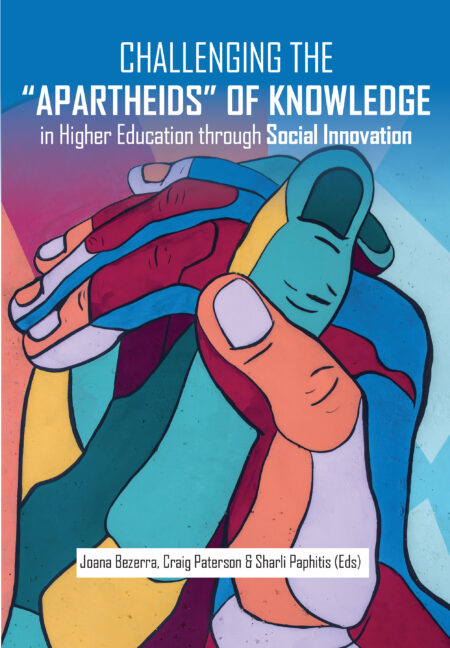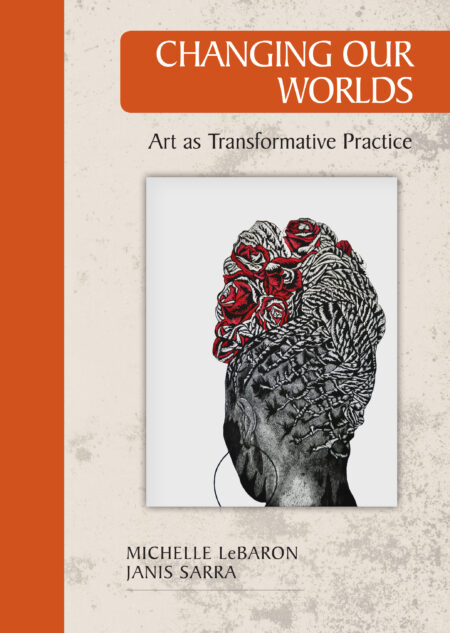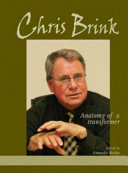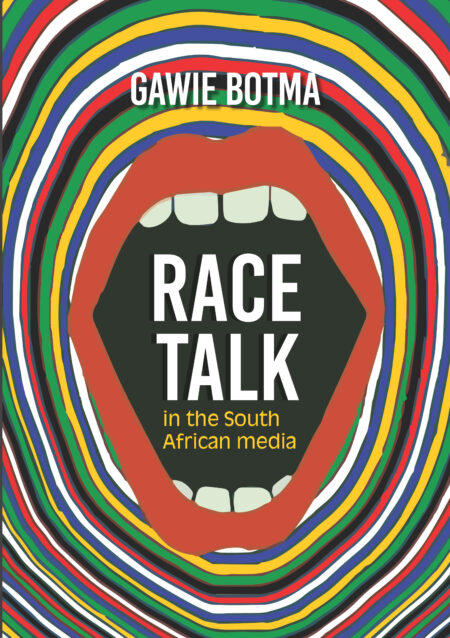-

Challenging the Apartheids of Knowledge in Higher Education through Social Innovation
0R345,00In order to understand the relationship between social innovation and the reimagining of the knowledge economy necessary to reorient higher education most fully towards the public good, we must draw from the experiences of those working on the front lines of change. This collection represents diverse voices and disciplines, drawing together the critical reflections of academics, students and community partners from across South Africa. The book seeks to bring together theoretical and practical lessons about how research methods can be used in socially innovative ways to challenge the OapartheidsO of knowledge in higher education and to promote the democratization of the knowledge economy.E
eBook: View eBook Version
-

Challenging the Apartheids of Knowledge in Higher Education through Social Innovation
0R275,00In order to understand the relationship between social innovation and the reimagining of the knowledge economy necessary to reorient higher education most fully towards the public good, we must draw from the experiences of those working on the front lines of change. This collection represents diverse voices and disciplines, drawing together the critical reflections of academics, students and community partners from across South Africa. The book seeks to bring together theoretical and practical lessons about how research methods can be used in socially innovative ways to challenge the ‘apartheids’ of knowledge in higher education and to promote the democratization of the knowledge economy.
Print: View Print Version
-

Changing Our Worlds
0R0,00Changing Our Worlds draws on the wisdom of African artists, theorists, educators and leaders. It profiles an array of transformative arts projects that, among other things, changed attitudes and behaviours toward HIV testing and prevention, helped rural citizens to design and build a new community centre and supported those with HIV/AIDS to strengthen their resilience. As a group of scholar/practitioners, collaborating on the book reinforced our confidence in the potency of arts practices to unsettle unjust orders, inspire new visions and embrace the human dignity that comes from acknowledging the interdependent world in which we live.
Print: View Print Version
-

Changing Our Worlds
0R475,00Changing Our Worlds draws on the wisdom of African artists, theorists, educators and leaders. It profiles an array of transformative arts projects that, among other things, changed attitudes and behaviours toward HIV testing and prevention, helped rural citizens to design and build a new community centre and supported those with HIV/AIDS to strengthen their resilience. As a group of scholar/practitioners, collaborating on the book reinforced our confidence in the potency of arts practices to unsettle unjust orders, inspire new visions and embrace the human dignity that comes from acknowledging the interdependent world in which we live.
Ebook: View eBook Version
eBook: View eBook Version
-

Changing Spaces
0R310,00Changing Spaces makes a forceful and credible case for the role of writing centres in engaging with students, staff and institutional structures in understanding issues of access from a social perspective … This is a specialist book for those working in writing centres and for academics of all disciplines. It is based on research and provides an important set of theoretical arguments, developed through reflection on writing centre practices, about student writing and the work of the university. Professor Sioux McKenna Centre for Higher Education Research, Teaching and Learning, Rhodes University How do we select and train tutors? How do we work with faculty? How do we combat the image that we are remedial, a ‘fix-it’ shop? How do we prove our worth? How do we show that we improve retention? … Changing Spaces demonstrates the flexibility of writing centers and the unique roles they play in South Africa. Writing centers everywhere represent institutional responses to the learning needs of their students, and they do so because writing centers adapt easily to different contexts and situations. They meet students where they are, as a group and individually. Professor Leigh Ryan Writing Center Director, University of Maryland, USA
-

Childhood Vulnerabilities in South Africa
0R0,00This book addresses different challenges that endanger the lives of children in South Africa from an ethical perspective. The text is meant to position itself as a resource for specialists (and practitioners) in ethics and childhood studies. The content is systematically and intersectionally presented, based on scholarly analyses, insights, reasoning, and expertise originating in different disciplines and backgrounds. It endeavours to help especially those who study the sociocultural contexts of children and families in terms of challenges and opportunities, and for possible support.
Print: View Print Version
-

Children of the Waters of Meribah
0R330,00EIn the decades since Black liberation theology burst onto the scene, it has turned the world of church, society, and academia upside down. It has changed lives and ways of thinking as well. But now there is a question: What lessons has Black theology not learned as times have changed? In this expansion of the 2017 Yale Divinity School Beecher Lectures, Allan Boesak explores this question. If Black liberation theology had taken the issues discussed in these pages much more seriously struggled with them much more intensely, thoroughly, and honestly would it have been in a better position to help oppressed black people in Africa, the United States, and oppressed communities everywhere as they have faced the challenges of the last twenty five years? In a critical, self-critical engagement with feminist and, especially, African feminist theologians in a trans-disciplinary conversation, Allan Boesak, as Black liberation theologian from the Global South, offers tentative but intriguing responses to the vital questions facing Black liberation theology today, particularly those questions raised by the women.E
-

Chris Brink: Anatomie van ‘n omvormer
0R190,00Professor Chris Brink het in Januarie 2002 die sewende Rektor en Visekanselier van die Universiteit Stellenbosch geword. Sy vyfjaar?termyn het in die teken van moeilike en uitdagende omstandighede gestaan. Hy moes die Universiteit in ‘n nuwe tydvak inlei waar transformasie van veral die histories Afrikaanse universiteite sterk op die voorgrond was. Die bundel is ‘n versameling van sy belangrikste toesprake met reaksies daarop van die media. Die boek sluit ook bydraes in van verskeie kollegas en kennisse.
-

Chris Brink: Anatomy of a Transformer
0R190,00Professor Chris Brink became the seventh Rector and Vice-Chancellor of Stellenbosch University in January 2002. His five-year term of office was a reflection of difficult and challenging circumstances. Under his leadership, the University entered a new period of transformation affecting particularly the historically Afrikaans universities. This book is a collection of his most important speeches with reactions to it from the media. The book also includes contributions from various colleagues and acquaintances.
-

Christian Identity
0R170,00EThis book is rooted in the quest for Christian identity in the Southern African context where Christianity is faced with many stark challenges, internal tensions and experiences of rapid social change.
The book explores six aspects of the highly complex notion of Christian identity, namely Christian institutions, a Christian ethos, Christian rituals, Christian experiences (with specific reference to the notion of OfaithO), Christian narratives (with specific reference to the category of OrevelationO and the place of the Bible in the Christian tradition) and Christian doctrine.
Print: View Print Version
Print: View Print Version
-

Christian Identity
0R215,00This book is rooted in the quest for Christian identity in the Southern African context where Christianity is faced with many stark challenges, internal tensions and experiences of rapid social change.
The book explores six aspects of the highly complex notion of Christian identity, namely Christian institutions, a Christian ethos, Christian rituals, Christian experiences (with specific reference to the notion of faith), Christian narratives (with specific reference to the category of revelation and the place of the Bible in the Christian tradition) and Christian doctrine.
Ebook: View eBook Version
eBook: View eBook Version


